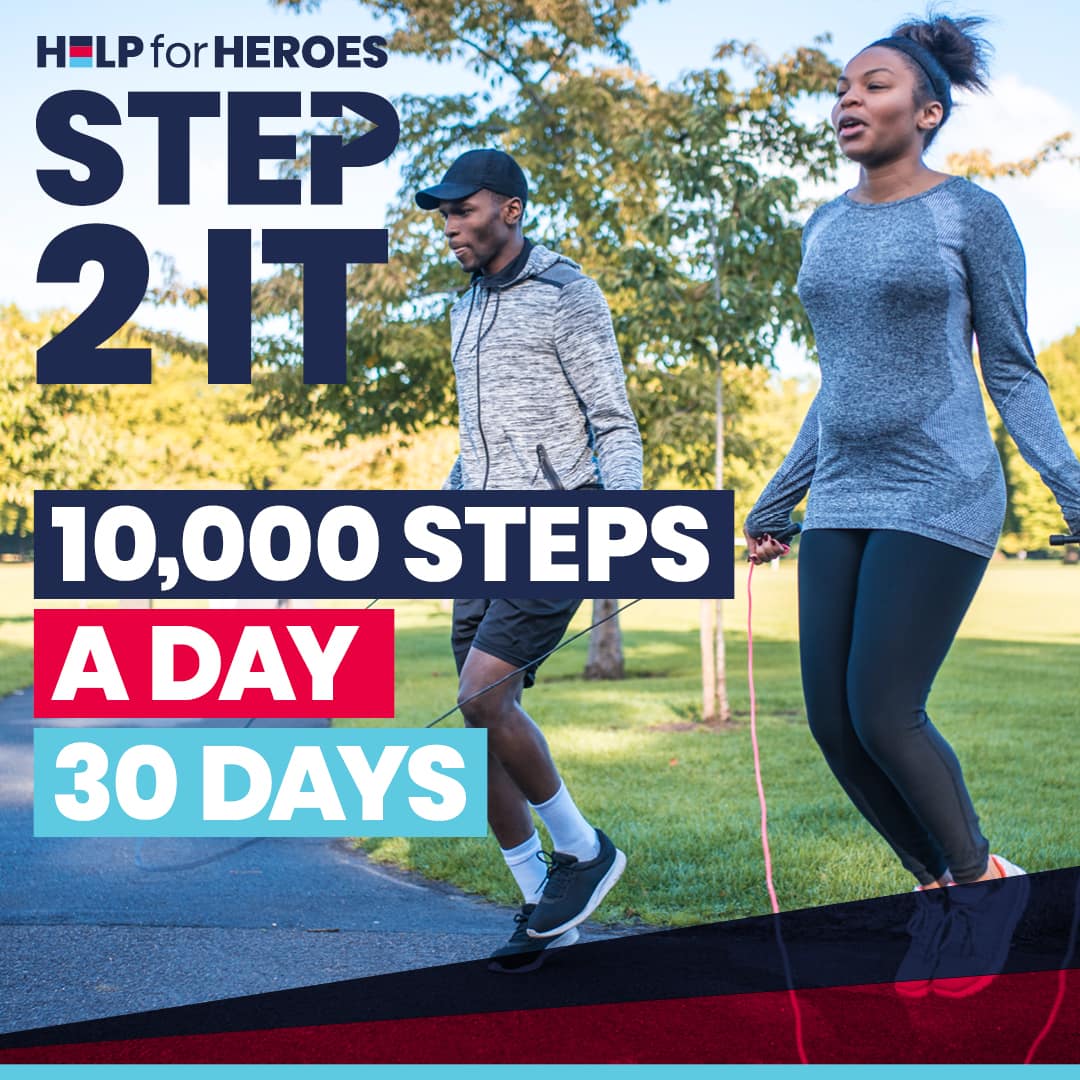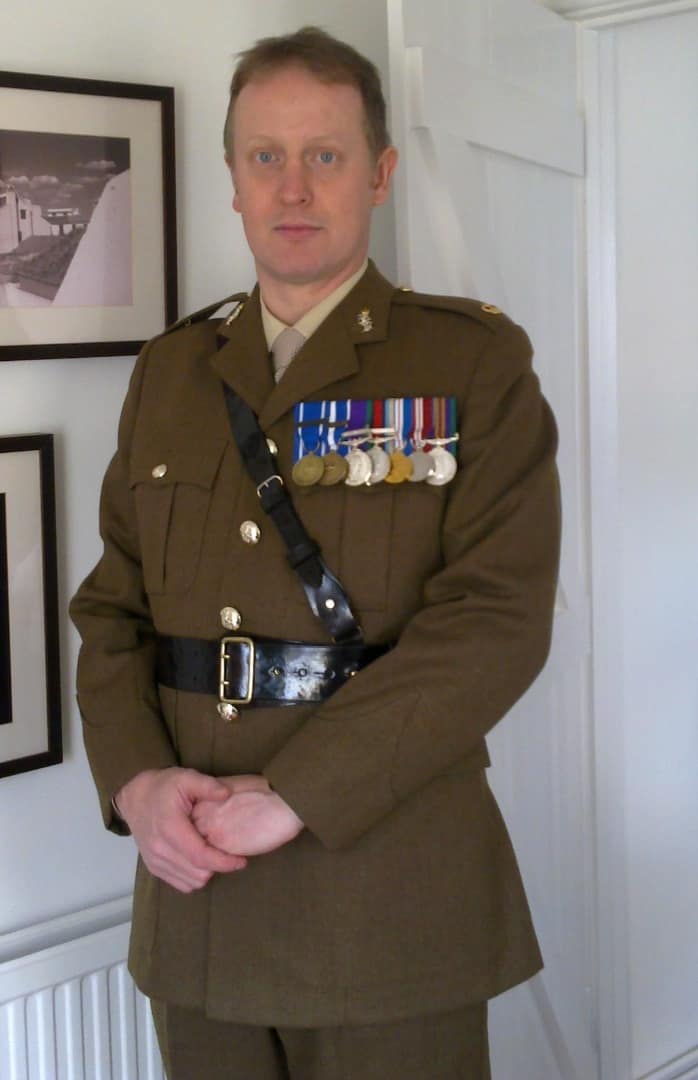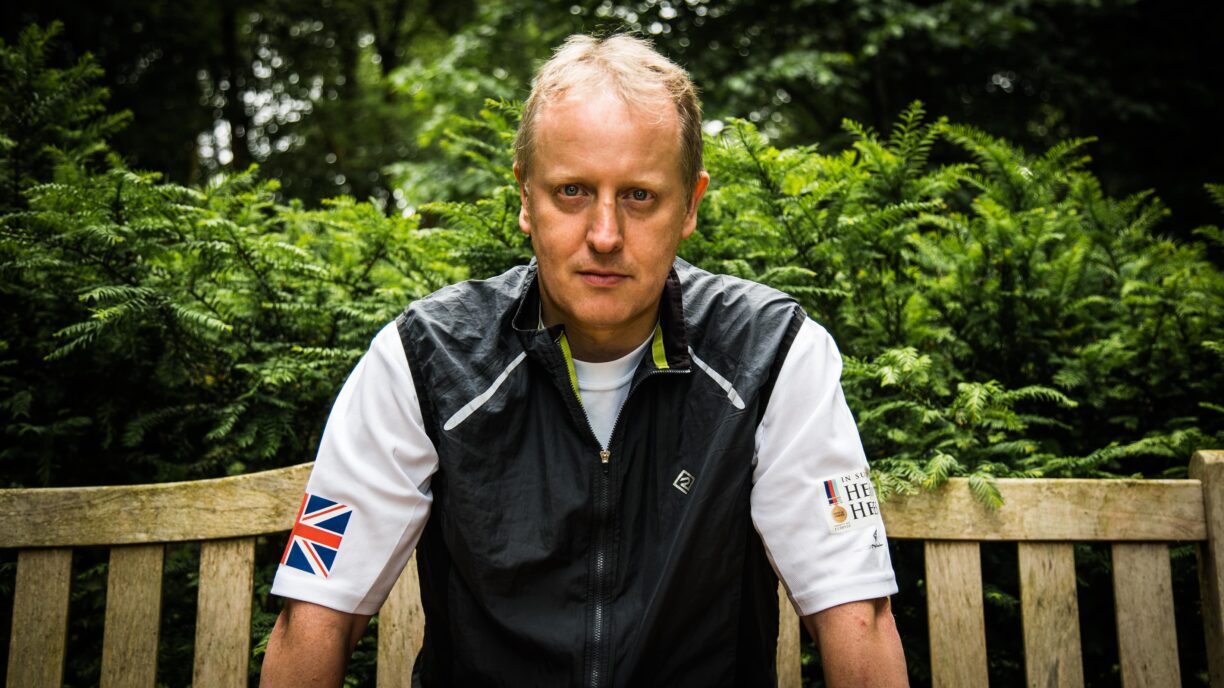Help for Heroes research* shows that 56% of wounded, injured and sick veterans, service personnel and their families have been exercising less since the pandemic began, with the main reason why cited as a lack of motivation (39% of respondents) – despite the fact that 65% of respondents find exercise is something they can use to manage stress and anxiety
Four wounded veterans who used exercise to overcome their own mental health challenges – including stress, anxiety, PTSD and depression – are urging others to step up to raise vital funds for wounded and sick veterans.
The four veterans, Cornelia Oosthuizen, Rob Shenton, Rachel Williamson and John Owens, reveal that learning to walk again, owning up to having a mental illness, accepting the life-changing nature of their injury and being truthful to themselves that they needed to ask for help as the biggest steps they have ever had to take in their recovery – as they encourage people across the UK to step up to help injured veterans like them get the support they need.
This is as research* carried out by Help for Heroes among wounded, injured and sick veterans, serving personnel and families reveals that 56% of this group are doing less exercise than normal since the COVID-19 pandemic began, with 39% saying that they don’t feel motivated to exercise.
This is despite the fact that 65% of respondents find exercise is something they can use to manage stress and anxiety.
Other reasons given for not exercising as much include having to self-isolate (29%), worries over catching the coronavirus (13%), having no/less free time (10%) and having to look after children/partner at home (10%).
Step 2 It asks participants to sign up at Step2It and do 10,000 steps a day (or a distance of their choice) for 30 days, getting sponsors to support their challenge.
With the majority of its fundraising events being cancelled due to the coronavirus pandemic, Help for Heroes hopes that Step 2 It will start plugging its fundraising deficit while giving people an opportunity to get fit in a fun way.
Hannah Lawton, Sports Recovery Manager at Help for Heroes, says,” Sport and exercise are massively important for many of the sick and wounded veterans that we support.
Not just to help their physical wellbeing but to improve mental health. It can be a great way to re-motivate yourself after injury or illness and help you realise you can still do the things you love.”
Over the past few months, many people have found solace in exercising and keeping fit. But like many of our veterans, there are also those who have felt demotivated because of concerns and worries caused by the coronavirus, even though we all know that exercise makes us feel better.
Our hope is that Step 2 It will give anyone and everyone across the UK a goal to work to – either to motivate them to get back into exercise, or a reason to keep up new habits formed.
By taking this big step for themselves, they won’t just be helping veterans like Cornelia, Rob, Rachel and John, but will be doing themselves a favour too.”
Cornelia Oosthuizen, 41, from Wiltshire: For former British Army officer, Cornelia Oosthuizen, the biggest step she has ever had to take was learning to walk again following the amputation of her lower leg.
This happened after five years of living in agony following an injury sustained while competing in the Army’s annual tennis competition in 2014.
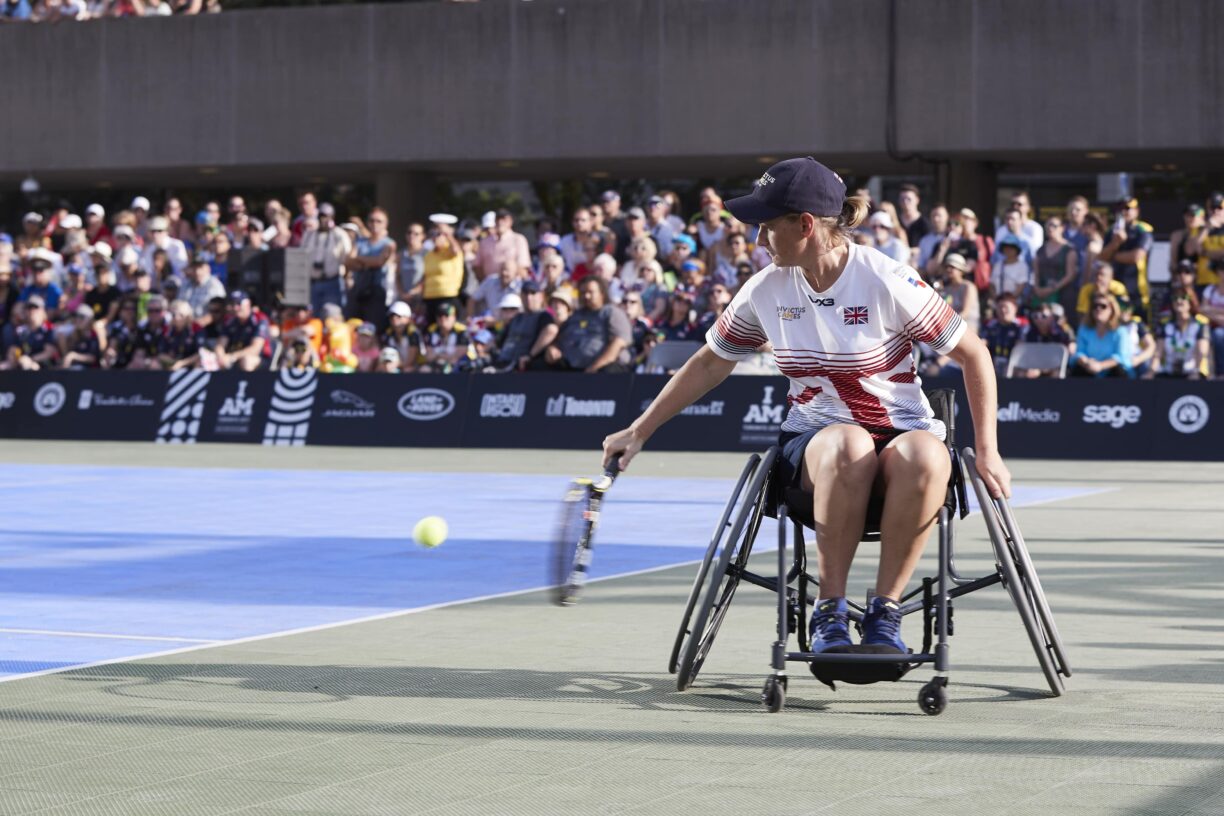
Eventually diagnosed with Complex Regional Pain Syndrome (CRPS) which is characterised by intolerable long-term pain, Cornelia had her leg amputated in 2018 as a last-ditch effort to stop the pain and underwent intense rehab and physiotherapy to learn to walk again.
She has since won a gold and bronze medal at the 2017 Invictus Games as a wheelchair tennis player and has her sights set on representing her country at the Tokyo Paralympics.
She says, “My quality of life deteriorated as the chronic pain intensified and I ended up being a shadow of my former self. When I became a single-leg amputee I then struggled to accept that for a long time, but this was also the beginning of accepting the new reality and sport for me was an absolute gift from Help for Heroes.
For those who get involved in Step 2 It I would like to say thank you, and can honestly say that doing physical exercise definitely helps with your mental health. Let’s do this, man, and don’t hold back.”
Rob Shenton, 47, from Eastleigh, Hants: Keen runner Rob Shenton was medically retired from the Armed Forces after a 21-year military career as a result of PTSD and recurrent depression.
For him, the biggest step he has ever had to take was owning up that he had a mental illness that was going to affect him for the rest of his life.
He says, “It was a shock and I wasn’t expecting it. Leaving the military was a turbulent period because I was saying goodbye to everything I’d known for over 20 years. I stopped looking after myself and stopped doing physical activity. I let myself go, I lost my love of running and of life.”
Rob sought help for his depression from Help for Heroes and has use the charity’s Hidden Wounds mental health support extensively since leaving the military.
With this support, Rob rediscovered his love of running; so much so that in 2018 he completed the North Pole Marathon. For those taking part in Step 2 It he adds, “What I have found to improve my mental health is if I go running. I’ve always loved running. It’s what I am. That’s why Step 2 It is so good because you will get that physical activity in.
Veterans have massive contributions to give to society and Help for Heroes are helping that. So, step to it, get out there, enjoy the challenge and thank you for all the money you’ll raise. It really does make a difference.”
Rachel Williamson, 31, from Leicstershire: For former RAF Senior Aircraftsman Rachel Williamson, the biggest step she has ever had to take was to accept her injury.
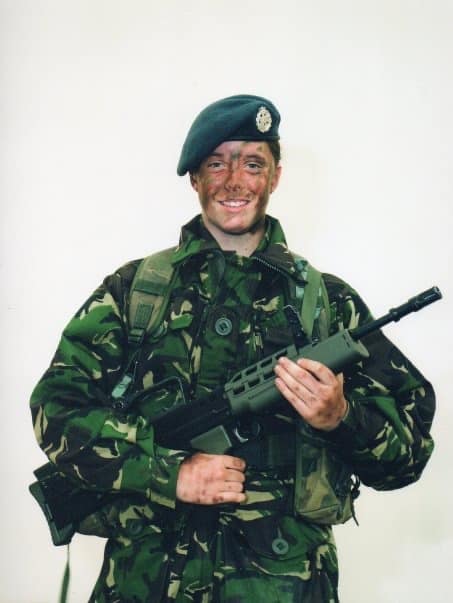
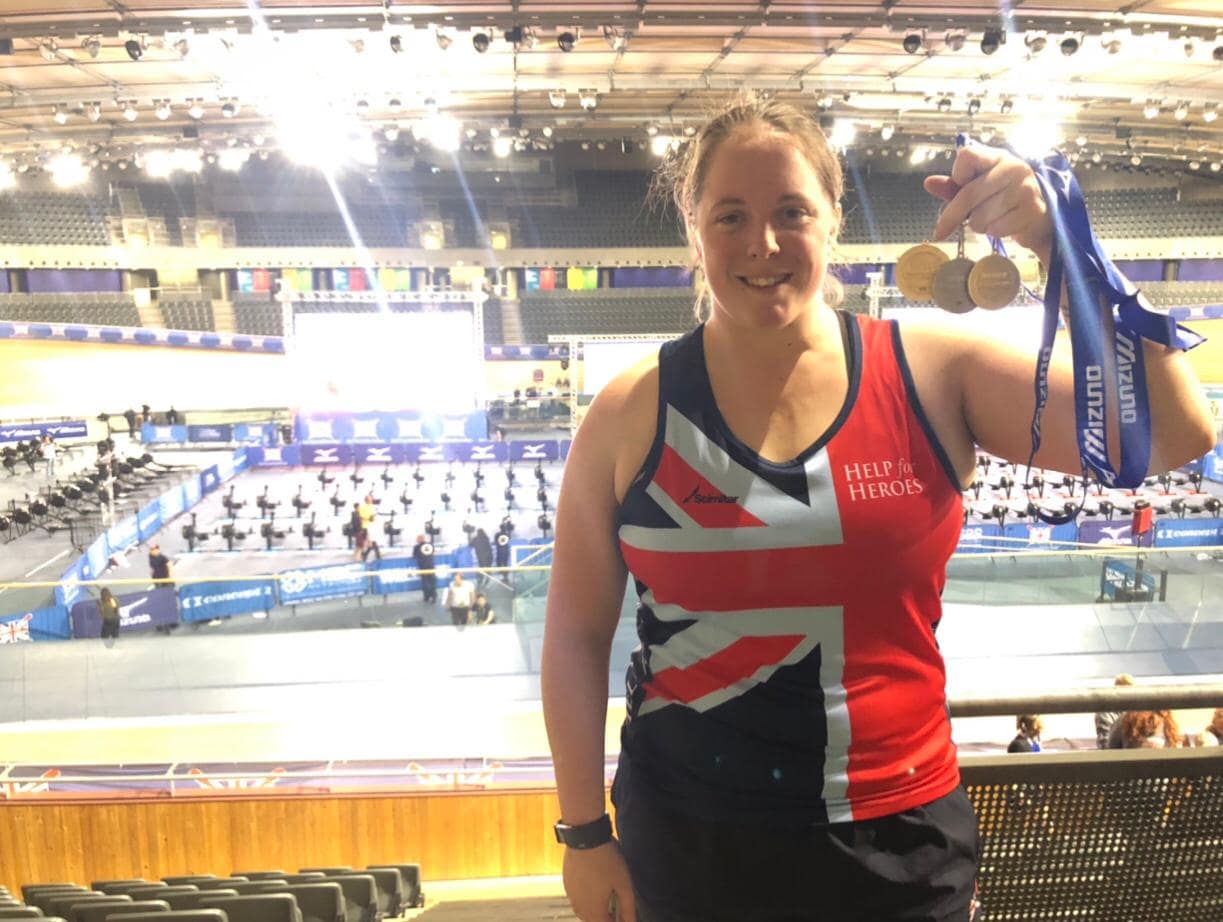
Her military career came to an end when what initially appeared to be a minor injury eventually caused her to lose the use of her right arm.
The consequences on both her physical and mental health were severe but, with support, Rachel has found new focus and is now taking steps towards a brighter future.
She says, “I was at my lowest point in early 2018, a dark place, and I hated myself. I also had to learn how to do everything again, such as writing for example. And I had to learn to ask for and accept help”.
Through Help for Heroes’ Sports Recovery programme. Rachel regained the confidence her injury had taken away from her and joined the Invictus UK programme. At the 2018 games, she won two gold medals, three silvers and one bronze.
She will be the first female captain of Team UK at the rescheduled 2021 Invictus Games in The Hague. For those taking part in Step 2 It she adds, “I had to convince myself again that sports are really enjoyable and good for you.
Now I am the person I used to be. Thanks to you, people like me can get the support that we need.”
John Owens, 46, from Kilmarnock, Ayrshire: For John Owens, one of the youngest soldiers to serve in the Gulf War aged just 17, the biggest step he has ever had to take was to be truthful to himself and say he needed help with his recovery.
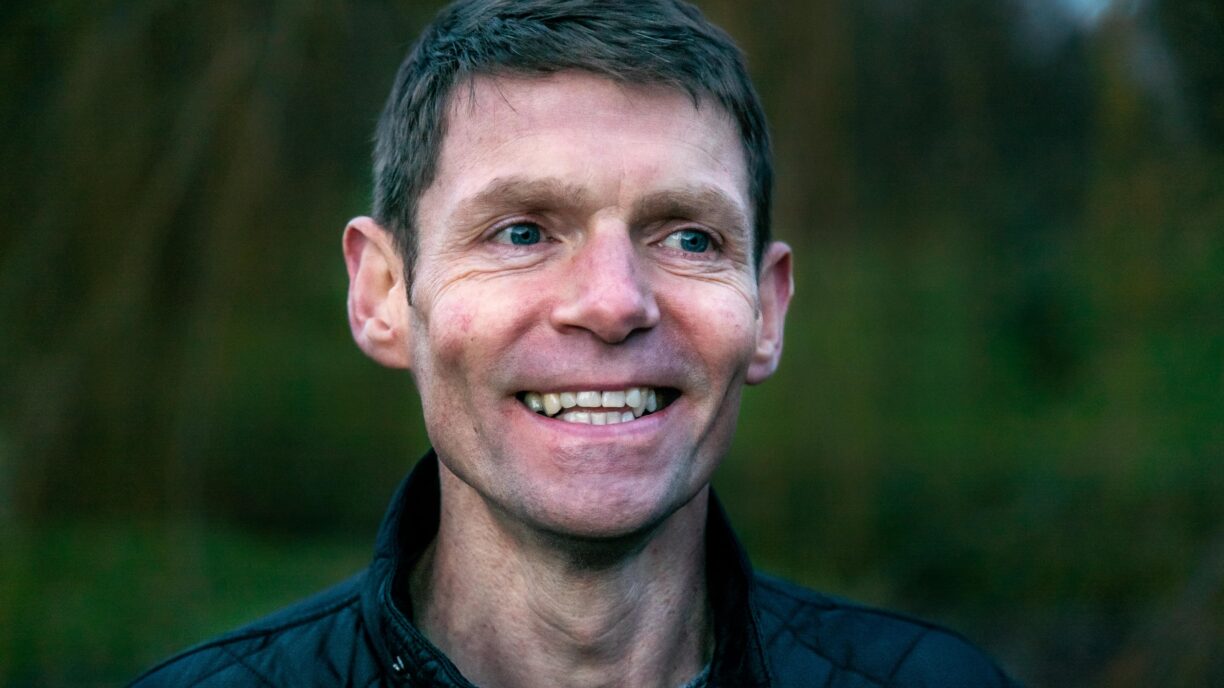
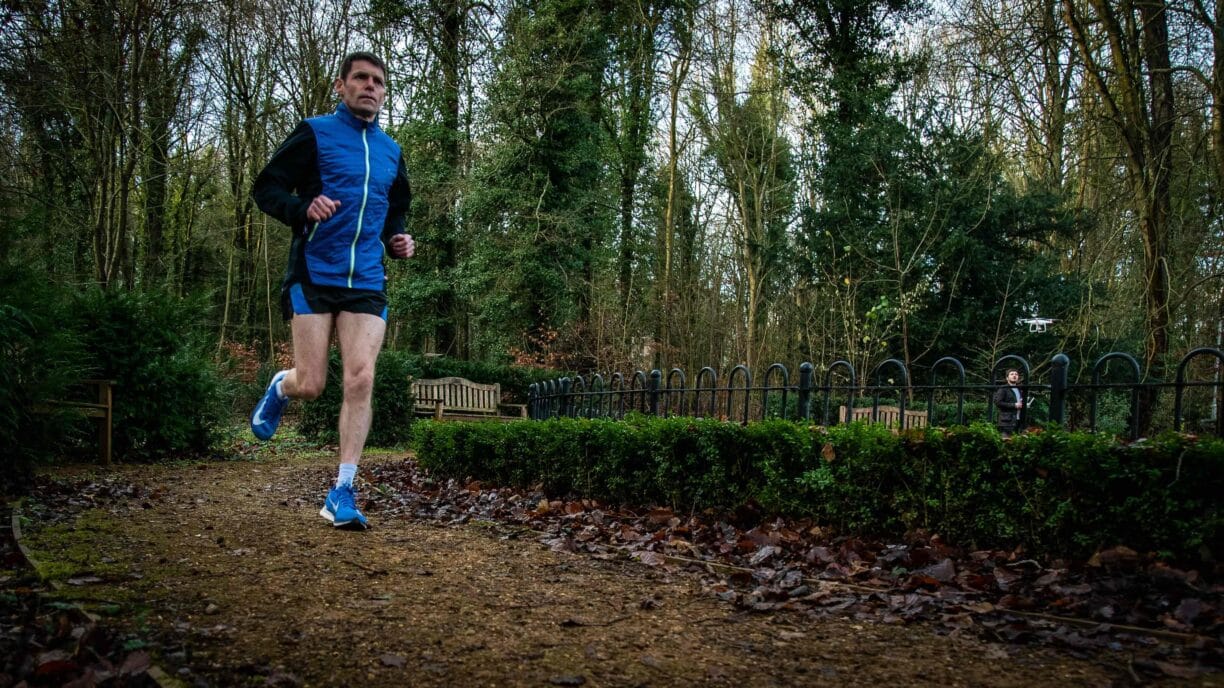
John suffered two strokes while serving, the first in his twenties and the second one aged 38. Physically, John recovered well but the damage done to his mental health – as he struggled to come to terms with his brain injury, the end of his military career and a broken marriage – wasn’t as easy to fix. Eventually, he was medically discharged, suffering with depression, anxiety and PTSD.
John attended sessions led by Help for Heroes Hidden Wounds mental health support and slowly began to make sense of the way he was feeling.
As a result, and with encouragement to pursue a love of running he slowly rebuilt his confidence and his life and has since participated in the Great Scottish Run, Scottish Half Marathon and the London Marathon. His encouragement to anyone signing up to the Step 2 It challenge is, “Someone once suggested to me that life is like a 400-metre hurdle race.
You just keep going and you tick each hurdle off. There will always be light at the end of the tunnel and there is always something you can focus on. Find that thing and never give up on it.
I hope you all have fun and enjoy every minute of it.” As part of John’s ongoing recovery and creative writing guidance by Help for Heroes, John has also taken a massive step in self-publishing his first book, Davy’s run, where he talks openly about the steps he’s taken to get to where he is today: https://www.amazon.co.uk/Davys-Run-Stroke-Survivor-honour/dp/1703647432/.
*About the Help for Heroes Research: * Based on 312 responses to a survey carried out by Help for Heroes in May 2020 of wounded, injured and sick veterans, serving personnel and families who answered questions about the amount of exercise they had undertaken since the COVID-19 pandemic began to understand how their support needs may have changed.
